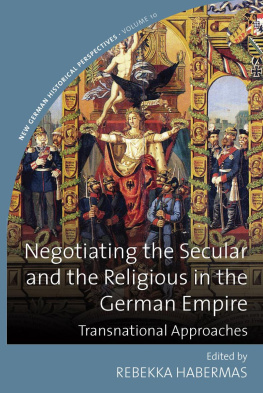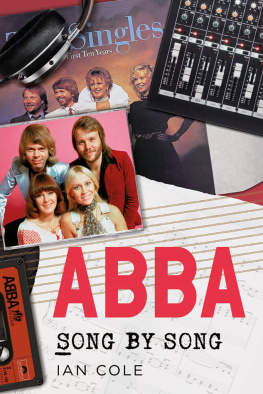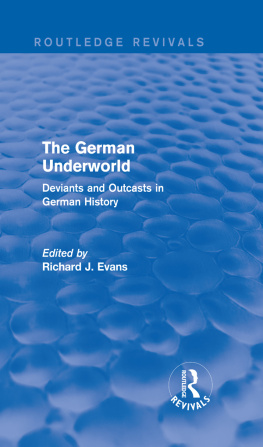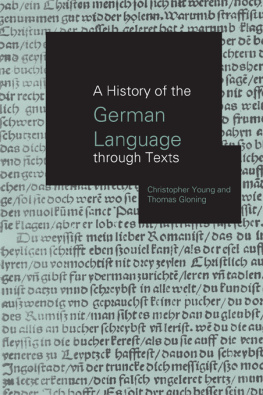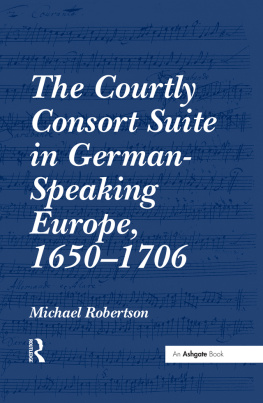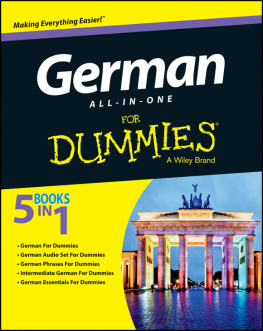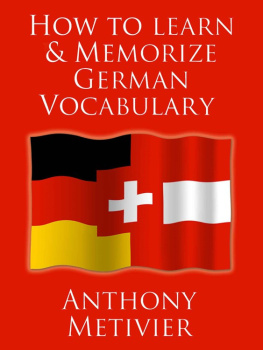
GERMAN SECULAR SONG-BOOKS OF THE MID-SEVENTEENTH CENTURY
German Secular Song-Books of the Mid-Seventeenth Century
The secular song of the seventeenth century represents a relatively neglected area of German culture. In this book Anthony J. Harper first studies the songs of the two great models of the time, Martin Opitz and Paul Fleming, following this by an analysis of the song-books and collections from three regions: the North-East, Central Germany, and the North, The procedure is thus both historical and geographical. The texts of these songs are examined in relation to structural principles, thematic range and stylistic treatment.
Harper establishes common features and regional variations of this genre, which involves love-poetry, songs of manners with colourful portrayals of everyday life, and comic songs in a lower stylistic register. Particular attention is paid to the work of Albert and Dach in Knigsberg, Finckelthaus, Schirmer, Krieger and Schoch in Leipzig and Dresden, and Rist, Voigtlnder, Zesen, Greflinger and Stieler in the Hamburg region.
Where appropriate, the book assesses the role of musical settings, while not seeking to offer technical insights into musical matters. Of value to scholars of German literature, this study will also be of interest to musicologists working on the Renaissance and Baroque periods.
German Secular Song-Books of the Mid-Seventeenth Century
An examination of the texts in collections of songs published in the German-language area between 1624 and 1660
Anthony J. Happer
First published 2003 by Ashgate Publishing
Reissued 2018 by Routledge
2 Park Square, Milton Park, Abingdon, Oxon OX14 4RN
711 Third Avenue, New York, NY 10017, USA
Routledge is an imprint of the Taylor & Francis Group, an informa business
Copyright Anthony J. Harper 2003
The author has asserted his moral right under the Copyright, Designs and Patents Act, 1988, to be identified as the author of this work.
All rights reserved. No part of this book may be reprinted or reproduced or utilised in any form or by any electronic, mechanical, or other means, now known or hereafter invented, including photocopying and recording, or in any information storage or retrieval system, without permission in writing from the publishers.
Notice:
Product or corporate names may be trademarks or registered trademarks, and are used only for identification and explanation without intent to infringe.
Publisher's Note
The publisher has gone to great lengths to ensure the quality of this reprint but points out that some imperfections in the original copies may be apparent.
Disclaimer
The publisher has made every effort to trace copyright holders and welcomes correspondence from those they have been unable to contact.
A Library of Congress record exists under LC control number: 2002074536
ISBN 13:978-1-138-72608-6 (hbk)
ISBN 13:978-1-315-19157-7 (ebk)
The inspiration for this study stems from the stimulating 'Baroque seminar' of Professor August Closs in my final year at the University of Bristol (1958-59). For me it was fortunate that not only the medieval and modern periods, but also the early modern period between them, formed an essential part of the course. A number of years later, after a spell of time working on modern literature, I returned to the lyric poetry of the Baroque. A research project on the Saxon poet David Schirmer, begun in the year 1968, was continued as a dissertation later accepted for a doctorate of the University of Edinburgh, and then forming the basis for a monograph on Schirmer, published in 1977. Schirmer's poetry has a wide range but a substantial number of his most memorable poems are songs.
One of the aspects of Schirmer's work which came to interest me most was his relationship with the poetry of Leipzig, where he spent some of his formative years. This led me into the 'regional aspect' of German poetry of the time and ultimately to a collection of essays on Leipzig poetry which appeared in 1985. In turn this interest was reflected in another monograph, focusing on the song-books of the Leipzig poet Gottfried Finckelthaus, which appeared in 1988.
Discontented with my relative lack of attention to the musical aspect of the song, I was able in 1990 to organize, with music-historian Dr Gudrun Busch, a work-in-progress seminar at the Herzog August Bibliothek, Wolfenbttel on the secular song in the 17th and 18th centuries; the papers were eventually published in 1992. In the meantime I was working on a series of editions of poets associated with Leipzig; the first of my facsimile editions, of the poetry of Christian Brehme, appeared in 1994, and the second, of the poetry of David Schirmer, is due to appear shortly.
Thus, over a period of more than two decades, not only in these major studies but also in shorter essays and articles, I had built up a body of work concentrating on lyric poetry, especially the song, and on specific regions of the German-language area. In the present study I have developed my findings and broadened the perspective to take in figures, areas and issues relating to the song in the central years of the seventeenth century.
In my previous work I had been much helped by a large number of colleagues, librarians and archivists in a variety of institutions in Great Britain, Germany (including, before 1990, both the old Federal Republic and the German Democratic Republic) and North America. It is impossible to acknowledge them all again here by name although some have been duly thanked in my previously published work. My research work had been funded from a number of sources, notably the British Academy, London and the Herzog August Bibliothek, Wolfenbttel and I am happy to repeat my gratitude to these bodies here. Information, photocopied material and microfilm had come my way from many institutions - including the Interdisziplinres Institut fr Kulturgeschichte der Frhen Neuzeit in Osnabrck and the Wolfenbtteler Arbeitskreis fr Barockforschung - and from many individuals, and much material from previous research could be utilized in the present investigation.
For this study, initiated in 1999, I was fortunate and honoured to be the recipient of a Leverhulme Emeritus Fellowship, which from 1999 until 2001 provided me with funds for a part-time research assistant, the purchase of microfilm material, and travel to libraries in Britain and Germany, My warm thanks go to the Leverhulme Foundation and its appointing committee for their substantial support of my work. I would like to express my gratitude to Gudrun Busch for many invaluable comments on the text and to Sandra Harper for much careful gathering of material and scrutiny of the text. Finally, my thanks go to Rachel Lynch and her colleagues at Ashgate Publishing for their friendly assistance in the preparation of the volume.
Anthony J. Harper
Glasgow, January 2003
Chapter 1
Introduction
The secular song of the seventeenth century represents a relatively neglected area of German culture. The presence in it of subtle variations, occasional eroticism, sometimes boisterous humour, rhythmic sparkle and colourful variety of everyday pictures makes it difficult to understand why this should be so. But literary historians dealing with the lyric have tended to look to the agonized spirituality of a Gryphius or a Catharina Regina von Greiffenberg as representing the best that the century has to offer, also to longer ethical poetry in Alexandrines on burning topics of the time such as Martin Opitz's TrostGedichte in Widerwertigkeit de Krieges. In the prose genre there is the genius of a Grimmelshausen with his novel Simplicissimus to admire. Music historians, it is clear from the secondary literature, have wished to examine the riches of German religious music, for example by Heinrich Schtz, the most famous composer of the century, and his successors down to Johann Sebastian Bach. Another recent focus has been on the Pietist song from the later seventeenth century onwards. In the secular song musical scholarship has tended to hold its fire for the huge explosion of talent in the art-song from the later eighteenth century onwards, with Schubert and his successors as the centre of attention. Of course there are exceptions to this generalized picture but in essence it has remained the situation until today. This is in no way to denigrate the impressive scholarship which the sacred music and the religious, didactic and ethical literature of the seventeenth century have generated. Those who admire the richness of German literature and culture, however, will point to a wider range of achievement than that which has hitherto been investigated to any notable extent. Richard Hinton Thomas has succinctly summarized the direction in which the secular song takes us:


